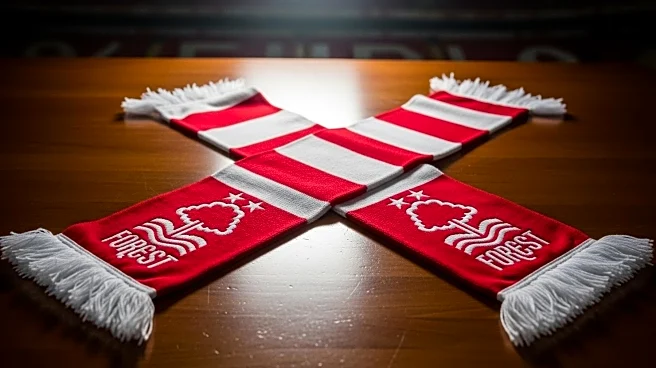What's Happening?
Ange Postecoglou has begun his tenure as the manager of Nottingham Forest, succeeding Nuno Espírito Santo. His appointment has highlighted a potential 'ideological clash' due to his attacking style, known as 'Angeball', which contrasts with the defensive approach previously employed by Nuno. Postecoglou's first training session has reportedly left players experiencing a culture shock as they adapt to his high-intensity, possession-based tactics. The transition comes after Postecoglou's recent departure from Tottenham, where he was dismissed despite winning the Europa League. Nottingham Forest players and staff, who held Nuno in high regard, may face challenges in adjusting to the new style of play.
Why It's Important?
The shift in managerial philosophy at Nottingham Forest is significant as it could lead to a transformation in the team's playing style and performance in the Premier League. Postecoglou's approach emphasizes attacking football, which may require a period of adjustment for players accustomed to a more defensive strategy. This change could impact the team's standings and their ability to compete in various tournaments, including the FA Cup and Europa League. The success of Postecoglou's methods will be closely watched, as it may influence future managerial appointments and tactical decisions within the league.
What's Next?
Nottingham Forest will need to quickly adapt to Postecoglou's tactics, with their next match against Arsenal posing an immediate test. The team will also have to navigate a busy schedule, balancing league and cup commitments. Postecoglou may seek to make strategic adjustments during the January transfer window to better align the squad with his playing philosophy. The club's performance in the coming months will be crucial in determining the long-term viability of 'Angeball' at Nottingham Forest.
Beyond the Headlines
The managerial change at Nottingham Forest underscores the broader challenges of implementing a new tactical philosophy in professional sports. It raises questions about the adaptability of players and the role of leadership in facilitating transitions. The situation also highlights the pressures faced by managers to deliver results while maintaining their strategic vision. The outcome of this transition could influence how clubs approach managerial changes and the integration of new playing styles.











